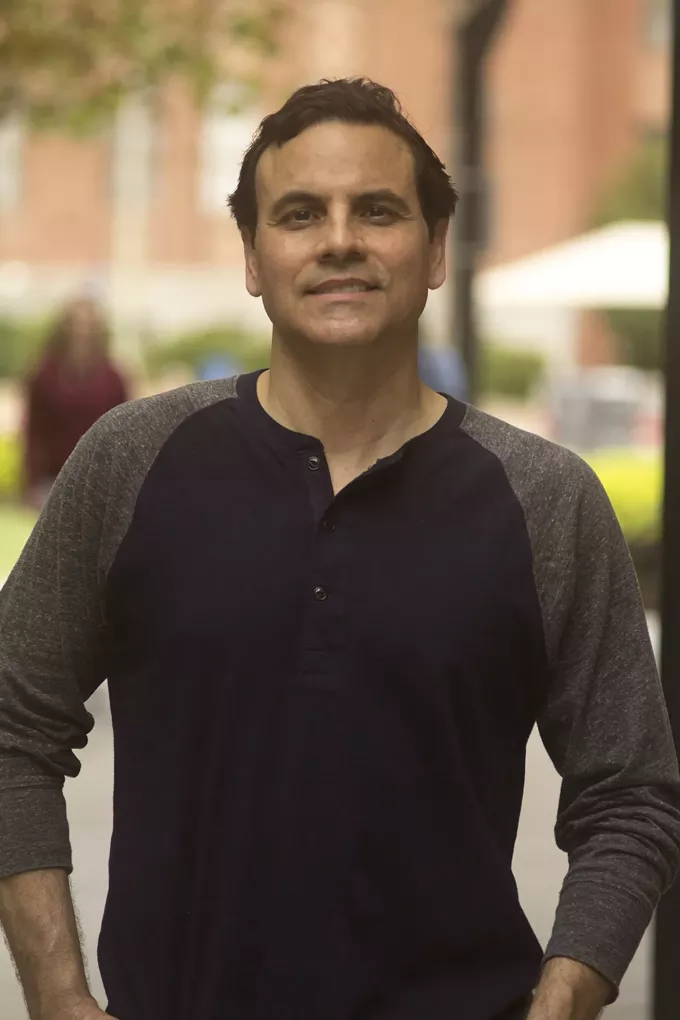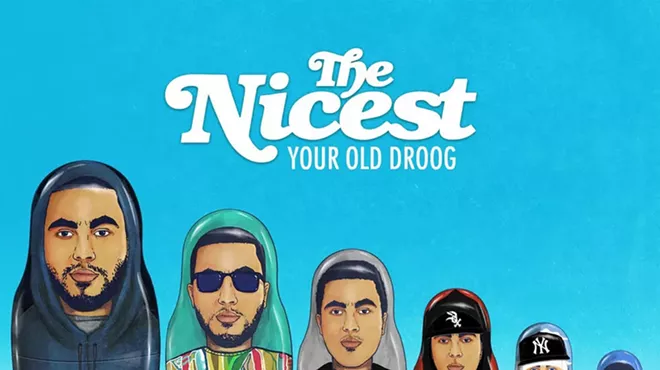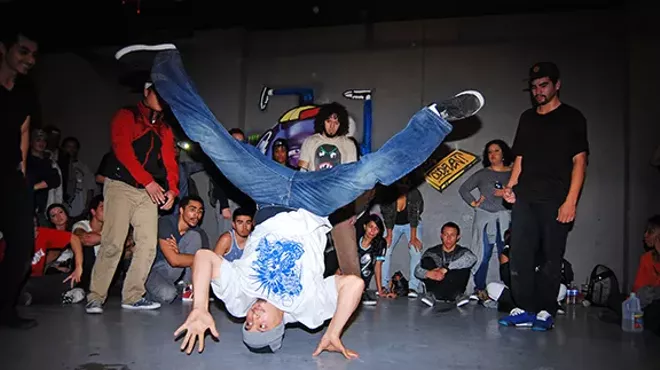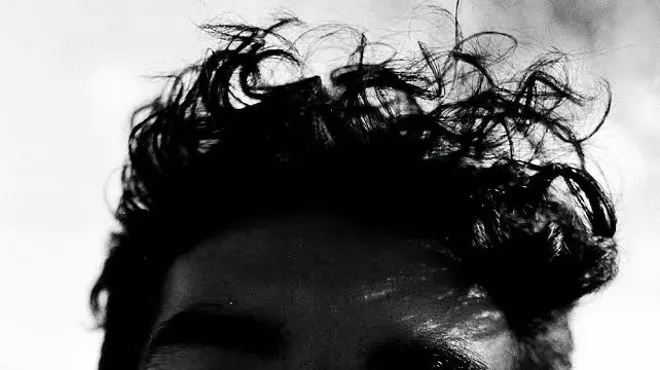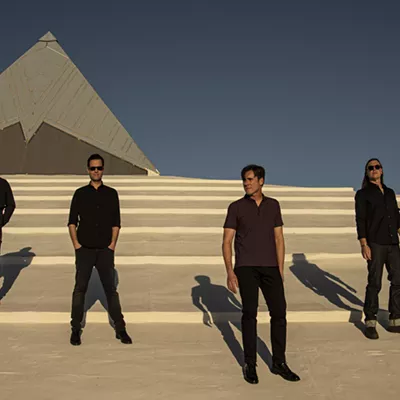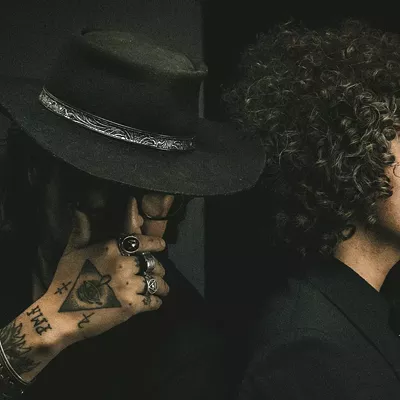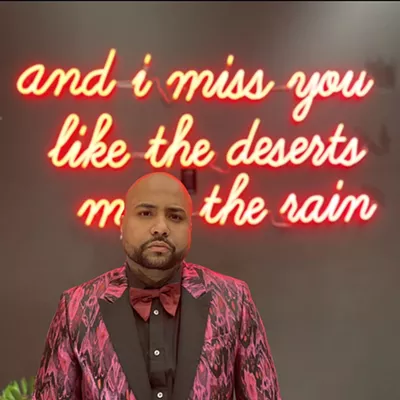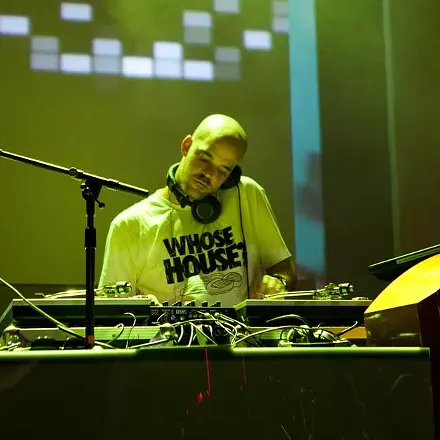The University of Arizona is one of the few, but growing number of, academic institutions that recognizes hip hop as a legitimate field of study. Under the Africana Studies minor, students can make their concentration in the billion-dollar industry. But aside from money, academia is also now focusing on the surprisingly spiritual side of rapping.
"In some ways rappers give us a better insight into the issues of the day," said Alex Nava, UA professor of religious studies. "They can cut through many of the shortcomings of academics, such as theorizing and abstraction."
Nava teaches two classes at UA: "The Question of God" and "Rap, Culture and God." He also recently published a book on the subject of the soul, in respect to both religion and music, titled In Search of Soul: Hip-Hop, Literature and Religion.
Although Nava grew up listening to hip hop and studying religion, the two topics never melded in his mind until he attended a lecture in grad school.
"It was really stimulating," Nava said. "They had never connected in any way until that lecture."
When Nava joined UA in the early 2000s, there were classes on rock, jazz and classical music, but certainly none on hip hop. Perhaps one of the reasons the genre had a difficult time getting an academic foothold at the turn of the decade is that it was the midst of the "Bling Era" of hip hop.
Coming out of the gangster rap hey-days of the '90s, with big names like Wu-Tang Clan, 2Pac and Notorious B.I.G., the early 2000s saw a rise in the mafioso-esque, braggadocious party rapping of Lil Wayne, 50 Cent and Usher.
However, this wave has calmed since 2010 or so, and restructured into what Nava refers to as the "post-gangster" era. There are current big names in hip hop, such as Chance the Rapper, J Cole and Kendrick Lamar, who are much more concerned with equality and justice, and, in a sense, disillusioned over the materialistic success their predecessors boasted about.
"Initially I had skeptics, but the way hip hop studies and hip hop itself has developed across the country is amazing," Nava said. "The topics of hip hop are profoundly relevant, and speak to a variety of interests, such as poetry, storytelling, social analysis and autobiographies—it's convinced the critics."
As for religion in hip hop, aside from the literal 'Christian hip hop' genre, there are many overtly spiritual rappers like the aforementioned Kendrick Lamar and Chance the Rapper.
"Originally people weren't sure, since religion in hip hop wasn't so obvious," Nava said. "But I realized there was a surprising level of spirituality in hip hop."
However, this isn't to ignore the violent and even Satanic lyrics of some Southern and "Memphis Rap" figureheads like the Three 6 Mafia.
"There's a lot of inventiveness in Southern hip hop, and it has such an influence on modern rap production," Nava said. "But I'm still very wary of the lyrics, which can be violent and misogynistic."
Nava spoke at the first incarnation of the Tucson Hip Hop Festival, and is slated to speak again this year.
"I really want to give a look at the styles of hip hop affected by geographic locations," Nava said, of his presentation plan this year, "West Coast hip hop versus East Coast hip hop, and the 'Third Coast' which is the South."
In addition, he also plans on speaking about the conception of soul music, and how hip hop adapted and transformed the soul music generation.
Nava is now working on a new book detailing hip hop in the American Southwest, Mexico and Latin America. He hopes to include a Tucson section. Aside from this, he continues to teach one of the now 400 university courses on hip hop across the United States. Harvard has a hip hop archive, Georgia Regents University has a class on Kendrick Lamar, and UA has Alex Nava.
"So far it's going really well," Nava said. "If anything, it's still growing."
Alex Nava is delivering his Tucson Hip Hop Festival Lecture from 2:10 to 3:10 p.m. Saturday, Feb. 24, at Exploded View Cinema.

